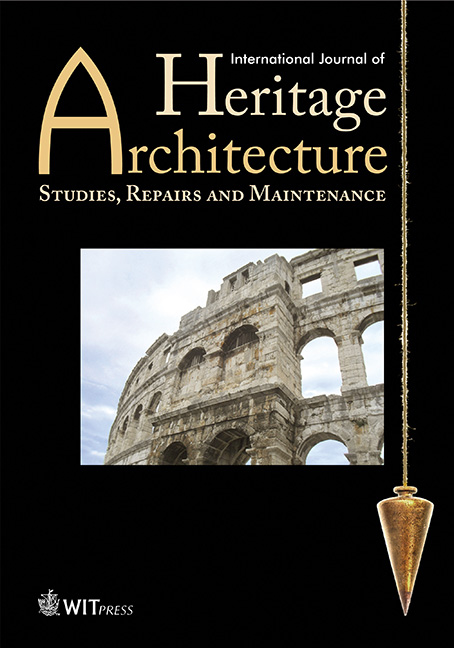Space analysis of traditional wooden mosques in Samsun in Kavak Town, middle part of black sea region, Turkey
Price
Free (open access)
Volume
Volume 1 (2017), Issue 3
Pages
11
Page Range
322 - 333
Paper DOI
10.2495/HA-V1-N3-322-333
Copyright
WIT Press
Author(s)
Zeynep Uzun & Aynur ÇIfTÇI
Abstract
Wood has been the most popular construction material for centuries in Turkey, the middle part of the Black Sea region, which owned a vast forested area. Samsun province is the richest city in terms of religious wooden architecture heritage with its identified 114 wooden mosques. Five traditional wooden mosques have been chosen as study area and documented in Kavak district, which is located in the south of Samsun. These mosques, used for prayer especially on fridays, religious holidays and funerals, have been built using various construction techniques and belonged to different periods. In this research, the wooden mosques are studied considering their relationship with environment and nature, shape of mass, plan scheme and interior and exterior architectural features. It is observed that these mosques have direct relation to the nature, especially water sources and forested area, and they are located far from the settlements in walking distance. The documentation is based on site survey drawings and interviews with religious officials, users of the mosques and theologians to understand the religious rituals of the region. until recently, the wooden mosques in Kavak have been studied only by art historians and theologians in detail about the values of mosques’ art history. In this article, Kavak region mosque will be analysed through architectural perspective for the first time. Kavak mosques have some conservation problems such as intervention and lack of volunteers, bad climatic conditions and deterioration of the wood materials. In this research, it is aimed to create awareness on religious architectural heritage in Samsun, Kavak, which is a source for conservation studies by offering a database.
Keywords
architectural features, Black Sea region, exterior, interior, Kavak, Samsun, space analysis, wooden mosques




